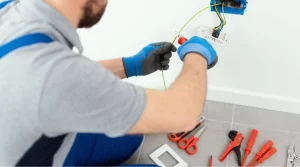In today’s fast-paced world, men face the challenge of juggling work, home life, and their journey towards addiction recovery. This article offers a practical guide tailored specifically for men seeking harmony in these areas.
By exploring effective strategies and techniques, we aim to assist men in navigating the demands of work while maintaining healthy relationships and making progress in their recovery.
Whether they are just starting or well into their journey, this guide provides valuable insights to promote personal growth and professional success.
Key Takeaways
- Balancing work, home, and recovery can be challenging for men in addiction recovery.
- Men’s addiction recovery programs provide crucial support and resources.
- Strategies for managing work, home, and recovery include prioritizing self-care activities, setting clear boundaries, seeking support, and developing effective time management skills.
- Establishing a supportive environment for recovery is important, including surrounding oneself with understanding individuals, creating a calm physical space, and fostering clear communication and healthy boundaries with loved ones.
Understanding the Challenges of Balancing Work, Home, and Recovery
Balancing work, home, and recovery can present significant challenges for men striving to overcome addiction. It is important to recognize and understand these challenges in order to develop effective strategies for managing them.
Men who are in the process of recovery often face the pressure of maintaining their professional responsibilities while also dealing with the demands of their personal lives. This can lead to feelings of overwhelm and stress, making it difficult to stay focused on their recovery journey.
Additionally, the stigma surrounding addiction can further complicate matters, as men may feel hesitant to seek support or disclose their struggles in the workplace or within their social circles.
Understanding the unique challenges that men face in balancing work, home, and recovery is essential in order to provide the necessary support and resources for their successful recovery.
The Importance of Mens Addiction Recovery Programs
Mens addiction recovery programs play a crucial role in providing the necessary support and resources for men striving to balance work, home, and their recovery journey. These programs understand the unique challenges that men face in their recovery process and offer a safe and supportive environment for them to heal and grow.
Recovery programs provide a sense of belonging and camaraderie, allowing men to connect with others who have had similar experiences and understand their struggles. Through group therapy sessions, individual counseling, and educational workshops, men can gain valuable tools and strategies to navigate the complexities of work, home life, and recovery.
These programs also offer guidance on setting boundaries, managing stress, and developing healthy coping mechanisms. By participating in mens addiction recovery programs, men can gain the necessary skills and support to successfully balance their responsibilities and maintain their sobriety.

Strategies for Managing Work, Home, and Recovery
Managing work, home, and recovery requires implementing effective strategies that enable individuals to navigate the complexities of their daily lives while maintaining their sobriety and overall well-being. It can be challenging to strike a balance between these different aspects, but with the right approach, it is possible to find harmony and success in all areas.
Here are five strategies to help you manage work, home, and recovery:
- Prioritize self-care: Make time for self-care activities such as exercise, meditation, and hobbies to recharge and maintain your well-being.
- Set boundaries: Establish clear boundaries between work and personal life to prevent burnout and maintain a healthy work-life balance.
- Seek support: Reach out to support groups, therapists, or mentors who can provide guidance and encouragement on your recovery journey.
- Practice time management: Develop effective time management skills to prioritize tasks and allocate time for work, family, and personal recovery activities.
- Communicate openly: Be open and honest with your employer, family, and friends about your recovery journey to garner understanding and support.
By implementing these strategies, you can navigate the challenges of work, home, and recovery while fostering a sense of belonging and well-being.
Establishing a Supportive Environment for Recovery
Creating a supportive environment is crucial for individuals seeking addiction recovery. When trying to overcome addiction, it is important to have a network of people who understand and support your journey.
Establishing a supportive environment involves surrounding yourself with people who are understanding, empathetic, and non-judgmental. This can include family members, friends, or support groups who can provide emotional support and encouragement.
It is also important to create physical surroundings that promote recovery, such as removing triggers and creating a calm and peaceful space.
In addition, establishing healthy boundaries and clear communication with loved ones can help foster a supportive environment.
Tools and Resources for Successful Mens Addiction Recovery Programs
Establishing a supportive environment for recovery is just the beginning; to ensure successful mens addiction recovery programs, it is essential to have access to the right tools and resources.
Here are five key tools and resources that can greatly support men on their journey to recovery:
- Therapeutic Support: Access to individual therapy, group therapy, and counseling sessions can provide the necessary guidance and support for men to address their addiction and develop healthy coping mechanisms.
- 12-Step Programs: Programs such as Alcoholics Anonymous (AA) and Narcotics Anonymous (NA) offer a structured approach to recovery, providing men with a supportive community and a proven set of principles to follow.
- Holistic Approaches: Incorporating holistic practices like meditation, yoga, and mindfulness can help men manage stress, improve mental well-being, and enhance their overall recovery experience.
- Educational Resources: Access to educational materials, books, and online resources can empower men with knowledge about addiction, recovery strategies, and relapse prevention techniques, fostering a deeper understanding of the recovery process.
- Supportive Networks: Building connections with other men in recovery through support groups, sober living communities, and online forums can provide a sense of belonging and camaraderie, offering valuable peer support and accountability.
Frequently Asked Questions
How Long Does It Typically Take to Complete a Men’s Addiction Recovery Program?
Typically, the duration of a men’s addiction recovery program can vary depending on various factors such as the severity of the addiction, individual needs, and the specific program being followed. It is important to note that there is no one-size-fits-all answer to this question.
However, it is common for these programs to range from several weeks to several months. The length of the program is determined by the progress made by the individual and the goals set for their recovery journey.
Are Men’s Addiction Recovery Programs Covered by Insurance?
Yes, men’s addiction recovery programs are often covered by insurance. Many insurance companies recognize the importance of providing coverage for addiction treatment as it is considered a medical necessity.
However, the extent of coverage may vary depending on the specific insurance plan. It is recommended to contact your insurance provider directly to inquire about the coverage options available for men’s addiction recovery programs. They will be able to provide you with detailed information regarding your specific policy and any potential out-of-pocket expenses.
What Types of Therapy or Treatment Methods Are Commonly Used in Men’s Addiction Recovery Programs?
In men’s addiction recovery programs, various therapy and treatment methods are commonly used to support individuals in their journey towards recovery. These methods may include cognitive-behavioral therapy (CBT), dialectical behavior therapy (DBT), motivational interviewing, group therapy, and individual counseling.
These approaches aim to address the underlying causes of addiction, develop coping skills, and promote positive behavioral changes.
Additionally, holistic approaches such as mindfulness, meditation, and physical fitness may also be incorporated to support overall well-being during the recovery process.
Can Men’s Addiction Recovery Programs Accommodate Individuals With Co-Occurring Mental Health Disorders?
Yes, men’s addiction recovery programs can accommodate individuals with co-occurring mental health disorders. These programs recognize the importance of addressing both addiction and mental health issues simultaneously for effective recovery.
They offer specialized treatment modalities and therapy approaches that cater to individuals with co-occurring disorders. This includes integrated dual diagnosis treatment, where addiction and mental health treatments are integrated into a comprehensive plan.
Additionally, these programs may provide access to psychiatric services and medication management to support individuals with co-occurring mental health disorders in their recovery journey.
Are There Any Specific Recommendations for Men Who Are Self-Employed and Trying to Balance Work, Home, and Recovery?
When it comes to balancing work, home, and recovery, self-employed men face unique challenges. It can be especially difficult to establish boundaries and maintain a healthy work-life balance. However, there are specific recommendations that can help.
Firstly, setting clear boundaries between work and personal life is essential. Creating a dedicated workspace and establishing specific work hours can help separate work from home.
Additionally, prioritizing self-care and seeking support from loved ones or recovery programs can provide the necessary foundation for success in all areas of life.
Conclusion
In conclusion, finding balance between work, home life, and recovery can be challenging for men in addiction recovery programs. However, by understanding the challenges, utilizing strategies for management, and establishing a supportive environment, men can create a structured and fulfilling life.
It is important to prioritize self-care, maintain healthy relationships, and seek support from addiction recovery programs. With dedication and the right tools and resources, men can achieve a balanced and successful recovery journey.
You may also like to read:
SUSTAINABLE MODERN HOME EXTERIOR DESIGN






